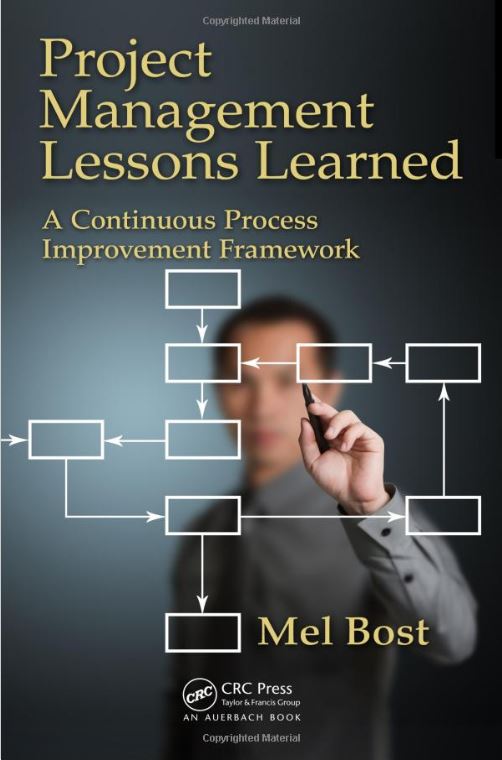For over twenty years, I have worked on project lessons learned in organizations. There are two different forms of Lessons Learned that project managers and PMO practitioners must understand to fully comprehend the concept of lessons learned.
The surface connotation of lessons learned deals with projects as they turn “strategy” into “action” ”in an organization. As projects create results and outcomes, sometimes these outcomes are not what was desired by the project. Or, there may be deliverables that don’t meet expectations. These projects are good candidates for process improvement in the form of lessons learned. My book Project Management Lessons Learned: A Continuous Process Improvement Framework provides a great framework for identifying, capturing, and incorporating lessons learned in the project process. Over time, I have also learned that this framework is extremely useful as a fact-based investigative framework that can be applied to any performance based scenario. This becomes highly important in today’s world where we are faced with a virus pandemic and a myriad of situations needing examination.
But the subtle thing about performance is that it takes “behavior” to reveal the end product or the performance we desire. Doesn’t it make sense that we should examine every aspect of “behavior” in order to realize the best performance we can achieve?
These are the surface, day-to-day, most identifiable lessons learned. Although corporations have been talking about lessons learned for many years, much of what was learned about lessons learned in early years was forgotten because the lessons learned were developed in a culture of “Blame.” If an organization thought it was useful to capture lessons learned, it was in an environment where finger pointing and attaching blame for what went wrong with the project. Over the years as companies, organizations, and corporations became more enlightened about what process improvement could do to move the organization forward, surface lessons learned became more accepted in organizations and much effort was devoted to rigorously identifying and making accessible lessons learned to everyone who could benefit from them.
Many readers may be familiar with the journey I made to Panama in 2011 at the request of the Panama Canal Authority to facilitate a project management lessons learned process in support of their five billion dollar Panama Canal Expansion Project.
The concept of the surface lessons learned has even seemed to mature in recent years and incorporated directly into the project management process. At the end of each phase gate, a lessons learned review now seems to be the standard before the project proceeds to the next phase.
I have also encountered a lessons learned phenomenon embedded in the organizational framework that is related to how management and organizational goals and policies are developed and implemented in an organization. The age-old question “Does Structure Influence Behavior?” is addressed by this lessons learned framework. I first recognized this “structure influencing behavior” framework while working for Ford Motor Company many years ago. Today, the area of organizational dynamics and systems thinking is unlocking many observations and lessons about how organizations introduce behaviors through their management goals and processes, which can be identified and changed to improve organizational performance .Daniel Kim in his book Introduction to Systems Thinking, covers this framework by introducing a overlying framework involving “Vision,” “Mental models,” “Systemic Structure,” “Patterns of Behavior” and “Events.”
Despite what we as project managers have learned about PMBOK and specific AGILE methodologies, I believe “behavior” determines performance in a project team environment. I have begun writing my blog posts for Mel Bost PMO Expert on behaviors that determine project performance. Examples include project teams sharing information in the project environment with other project teams, assigning diverse project team members to teams to foster innovation, sharing stories between project team members and project managers as a learning technique, identifying best practices and engaging in benchmarking processes, fostering clear communications among team members and the project manager, looking for ways to lessen stress in teams during crises, etc.
Performance, performance, performance! That is what every Program Management Organization (PMO) is clamoring for. But it is “behavior” behind the scenes on the part of project managers, team members, stakeholders, sponsors, and vendors that really determines the performance and success of projects.
So, as you continue your career completing projects and advancing the methods of the project management discipline, always keep in mind that “awareness” of behavior is so important to the overall success of the discipline.

Leave a Reply